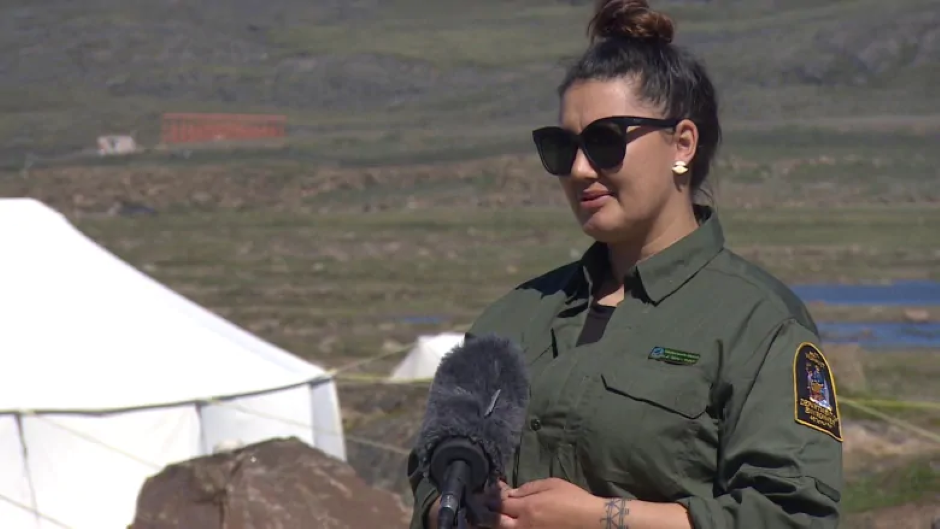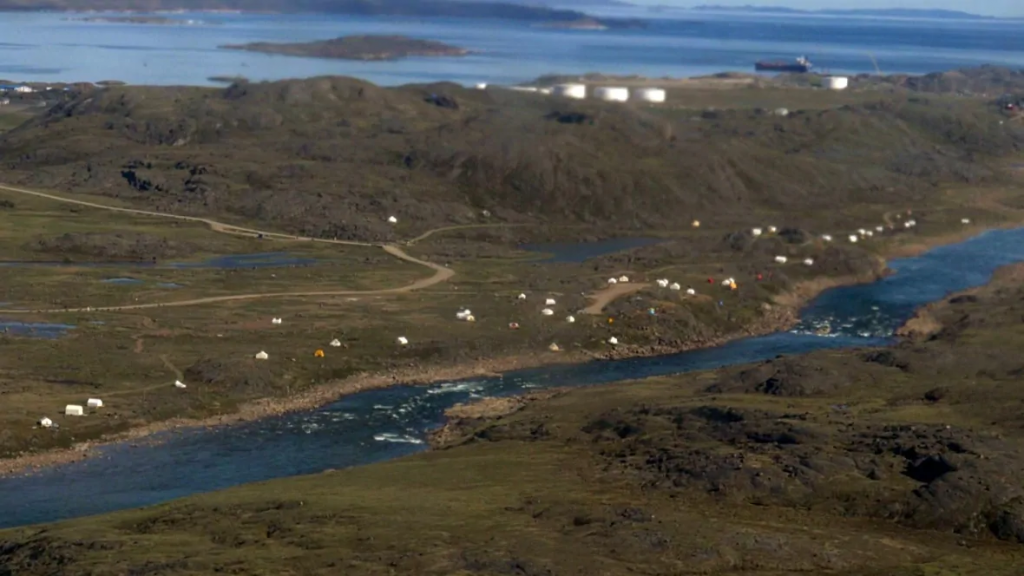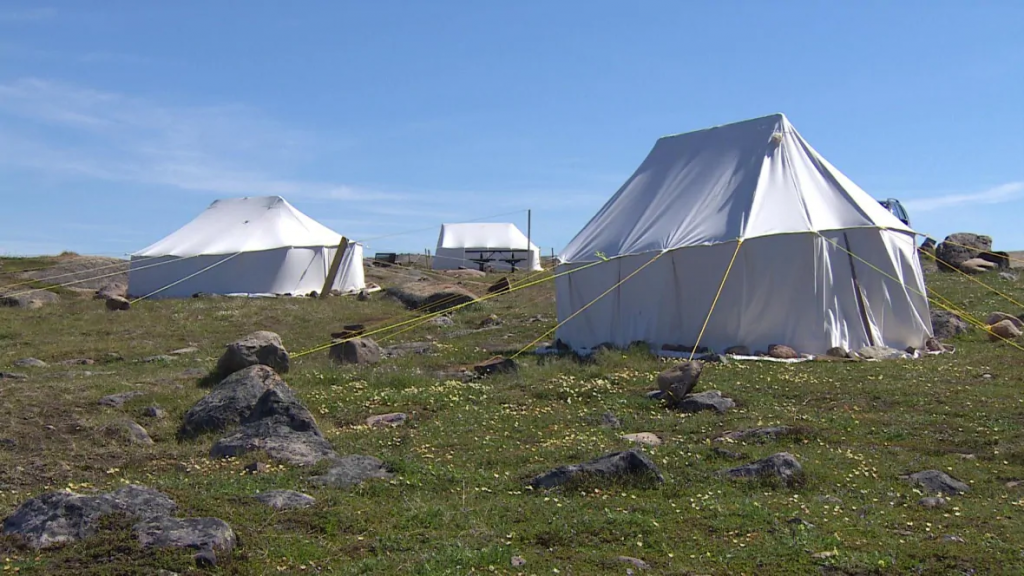Have hotdogs, need outhouses: Nunavut park overrun by eager campers in Arctic Canada

There are always tents set up along the river at Sylvia Grinnell Territorial Park in the summer — but this year, there are a lot more tents than usual.
The park outside of Iqaluit has 30 permanent campsites where people can register to leave their tents up throughout the season from June to September.
Nunavut Parks staff member Caroline Ipeelie-Qiatsuk says there are 80 tents right now, and that number is still climbing. Visitors are asked to register their tents.
There’s no limit to the number of tents that can be set up or the number of people that can visit the park.
Ipeelie-Qiatsuk estimates that about 400 people visited the park last summer. Staff are putting that number at more than 1,000 now.
“Just in two weeks you can see the major jump in traffic,” Ipeelie-Qiatsuk said, since the weather has warmed up.

Park use increases amid pandemic
Non-essential travel is still discouraged by Nunavut’s Health Department because of COVID-19, and a public health order requires any residents returning to the territory to isolate in hotels for two weeks first.
Indoor gatherings are capped at 10 guests, while 50 people are allowed to gather outdoors if physical distancing is acknowledged.
This means there are a lot more people staying in Iqaluit for the whole summer, and based on the numbers at the territorial park, residents are spending more time outside.
Nunavut’s Chief Public Health Officer Dr. Michael Patterson has said that spending time on the land with people in your household is a way to safely physically distance.
For large tents, like the white canvas kind often seen at the park, staff are recommending that there be no more than six people inside.
Park maintenance, patrols increase
Because of the increase in visitors, Ipeelie-Qiatsuk says park staff are extremely busy and the park’s amenities, like picnic tables, garbage bins, outhouses and fire pits, are seeing a lot more use.

Staff patrols have also increased on evenings and weekends to monitor the high traffic.
Earlier in July, a polar bear was reported to have been seen at the park, but wildlife officers say no bear was found. Staff are reminding residents then that “the Arctic is bear country” and bears could be encountered at any time.
An annual summer learning series, the ‘Learn To…’ program, is still happening this year. While the park pavilion is closed, there are workshops at the park on Tuesdays and Thursdays. Some activities include learning to make bannock, identify plants or drum dance.
Related stories from around the North:
Arctic: Arctic cruise operators brace for coronavirus uncertainty, Radio Canada International
Canada: Scrapped 2020 cruise season will cost communities in Nunavut, Canada almost $1 million, Eye On The Arctic
Finland: Jump in, the water’s (mostly) fine in Finland, study finds, Yle News
Iceland: Iceland and Greenland implement COVID-19 testing for travellers, Eye On The Arctic
Norway: Norwegian cruise operator Hurtigruten reframes 500-guests ships for year-round expedition cruises, The Independent Barents Observer
Russia: All Russia’s North Pole cruises rescheduled to 2021, The Independent Barents Observer
Sweden: Swedish company Birka Cruises to shut down after 49 years, Radio Sweden
United States: ‘A little frustrating’: Northwest Canada tours, Alaska cruises cancelled this year, CBC News



